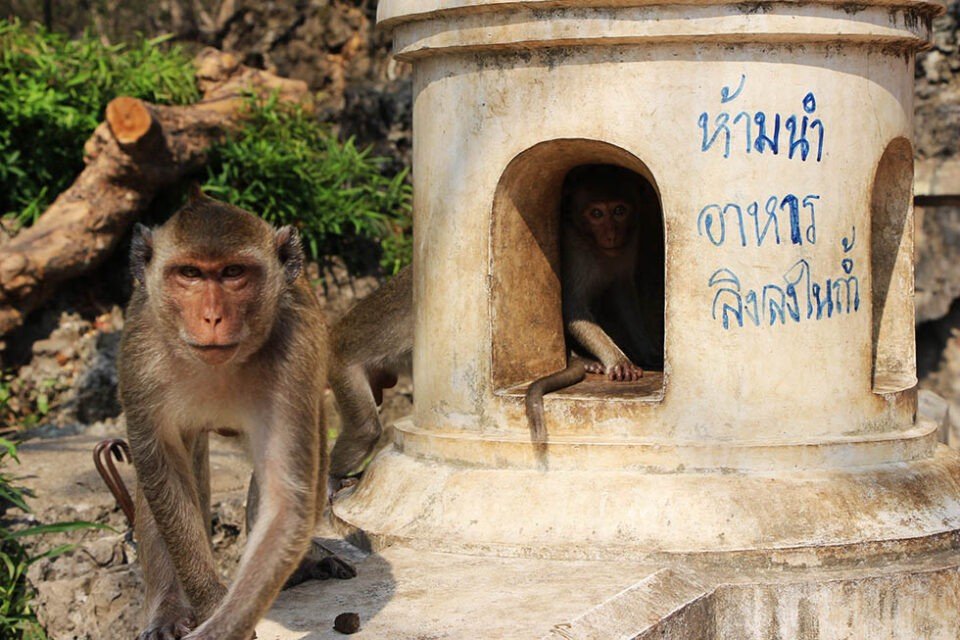Phetchaburi has swung into action to defuse a population explosion among monkeys that is increasingly impacting human residents and tourists.
he central province boasts at least 1,000-1,500 macaques per district, rising to 3,000 in the prime primate real estate of Muang district. And the famously promiscuous habits of the simian swingers means these figures are climbing every week.
Locals complain that marauding bands of monkeys present a threat to hygiene and the tourism industry.
While the cheeky macaques are undoubtedly a draw for visitors, they rarely show fear of their human cousins and can snatch valuables such as phones or sunglasses if allowed to get close enough.
Phetchaburi residents are getting increasingly fed up with this anti-social behaviour, saying it presents a danger to life and property. Macaques can also carry diseases including rabies.
Heeding locals’ complaints, Yuthaphon Angkinan recently paid a visit to the macaque population control project at Wat Kuti School in the north of the province.
An adviser to the Ministry of Natural Resources and Environment, Yuthaphon declared that local monkey gangs are now being controlled via sterilisation. They are also being examined randomly for diseases, he added.
The project has captured 600 macaques over the past 12 months. The monkeys are sterilised before being set free. Blood samples taken from 10 per cent of the creatures are also screened for diseases.




